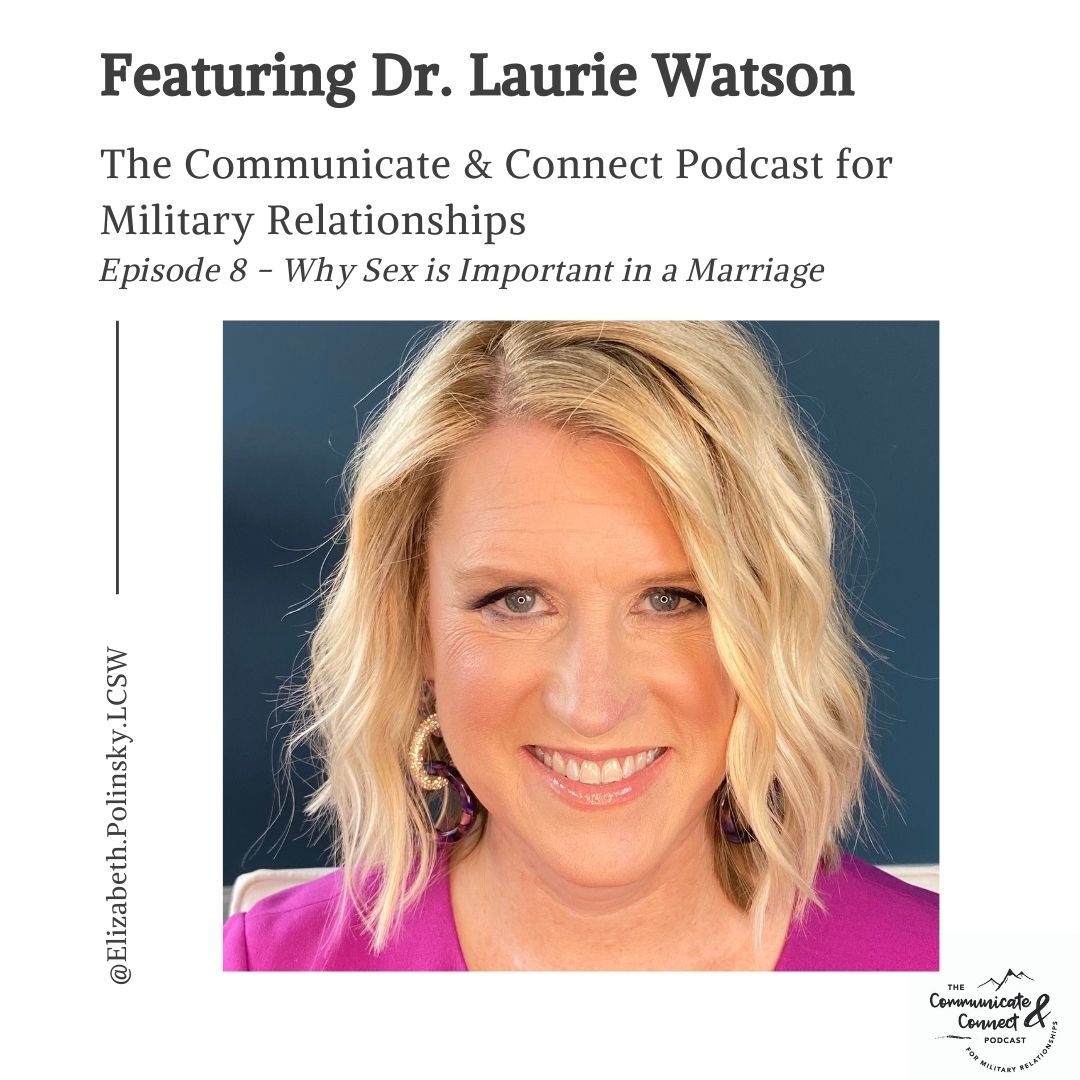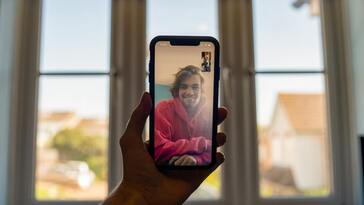IN THIS PODCAST
SUMMARY:
MAIN POINTS:
1. We all need support for our individuality in our own endeavors but we also need love and closeness and sex. When people get married, one partner tends to want more closeness and connection, whereas the other person may want to focus on their life purpose and autonomy. Often times women want to talk to feel emotionally close before they want sex; whereas men typically want sex to feel emotionally close because men often feel emotional closeness through their bodies. Men may want sex to feel emotionally safe enough to talk with their partner. While this is a stereotypical gender normed example, it is an example that commonly happens. It doesn’t have to be a power struggle, we can come to each other in vulnerability and talk about our needs and our feelings”. -- paraphrased from Dr. Laurie Watson
2. Couples can feel very differently about the importance of sex in a marriage.
For many people there is a huge discrepancy for how couples rate the importance of sex in a relationships. For those with a lot of testosterone, their emotional connection is formed from the body and felt physically in the body. The big problem is when people are mismatched--and women and men are often mismatched in sex drive. Women’s sex drive is often formed in their mind and imagination. They allow themselves to transform sexual energy throughout the day and transform in into a readiness for sex. They store up the energy in their mind, or actively cultivate sexual feelings through mental fantasy, in order to be ready for sex with their partner. Women tend to be able to take that energy and store it for when it can be released with their partner. For women it is important to be able to do this--eroticism has to be actively developed, it does not happen naturally. Women need to learn how to be able to communicate directly about the mood and context needed to feel sexual. Women need to “show and tell” to help men know what they want because the messages men get from porn are not accurate for what feels good to most women. Most women have orgasms through clitoral stimulation. Only about 4%-20% of women can orgasm through sexual intercourse. Women need to show their partners what they like even though it's vulnerable and scary. Knowing what blocks you and what turns you on is really important in developing an erotic core.” -- Dr. Laurie Watson
3. The majority of times during sex, women need to orgasm or they wont want to keep having sex.
Men very rarely learn that the cliterous is analogous to the penis in men. Most men want their partners to orgasm, but men and women have different bodies. For women, vibrators can be helpful in decreasing the time if needed, especially for a weeknight quickie. The 20-20 solution: It takes women 20 minutes of foreplay to get ready for sex and then 20 minutes of direct clitoral stimulation to reach orgasm.” -- paraphrased from Dr. Laurie Watson
4. How to keep things erotic over long distance and deployment?
There has to be a great deal of intention about maintaining emotional and physical connection while they are gone. About 70% of soldiers have PTSD and have been traumatized. If you have PTSD, then you are likely changed and traumatized sexually; this is because sex requires us to let down our guard to be merged with someone else. But the military trains you to be vigilant and on watch, which is the opposite of sex where you are supposed to let everything go and merge. The difficulty is how do I let go, and let my guard down, when all my training says that that's going to be dangerous for me”. -- paraphrased from Dr. Laurie Watson
Maintaining connection at a distance needs to have an agreement about regularity--texting, sexting, talking dirty, and talking about the longing in your body are all helpful. This can be hard for women who were socialized to not talk about sex. Women particularly need to feel desired. But men tend to need to hear that their partners want them sexually. It helps men to know that you want them in the way that they feel it the most--which is often physically. This is what helps them feel desired. All humans need to feel desired.
Men need explicit talk about how she desires him too.” -- Dr. Laurie Watson
Words of Wisdom from Dr. Laurie Watson:
You can listen to Foreplay Sex Radio to help you and your partner understand female orgasm as well as maintaining sexuality after a traumatic event! Listen to the Foreplay Radio Sex Therapy here https://www.foreplayrst.com/ .
Working with Dr. Laurie Watson:
Dr. Watson the Director of Awakens Counseling and is the host of Foreplay Radio Sex Therapy. For more information on Awakens Counseling, see https://awakeningscenter.org/therapists/laurie-watson/ . You can listen to Foreplay Radio Sex Therapy here https://www.foreplayrst.com/ .
Podcast Sponsor: The Relate Assessment is the most comprehensive relationship assessment in the world and is based on 10 predictors of marital stability. It’s supported by the American Association for Marriage and Family Therapy and is the one my husband and I used during our premarital couples counseling. To get 20% off the assessment, go to https://relateinstitute.com/ and enter “POLINSKY20”. Thanks for Listening! 
Elizabeth Polinsky is a marriage and couple therapist specializing in working with military members, veterans, and their families. Liz is located in Norfolk, Virginia, and provides online counseling services throughout Virginia, South Carolina, and Arkansas.
DISCLAIMER: My podcast, blogs, videos, newsletters, and products are general information for educational purposes only; they are not psychotherapy and not a replacement for therapy. The information provided does not constitute the formation of a therapist-patient relationship. You should consult your doctor or mental health provider regarding advice and support for your health and well being. I cannot answer questions regarding your specific situation. If you are experiencing a medical or mental health emergency, you should call 911, report to your local ER, or call the National Crisis Hotline at 1-800-273-8255. Nothing I post should be considered professional advice. The information in my podcast, blogs, videos, newsletters, and products are not intended to be therapy or psychological advice. The podcast, blogs, videos, newsletters, and products are not a request for a testimonial, rating, or endorsement from clients regarding counseling. If you are a current or former client/ patient, please remember that your comments may jeopardize your confidentiality. I will not “friend” or “follow” current or past clients to honor ethical boundaries and privacy; nor will I respond to comments or messages through social media or other platforms from current or past clients. Current and past client’s should only contact me through the professional contact information provided on the website. Lastly, accounts may be managed by multiple people. Therefore, comments and messages are monitored by staff and are not confidential. Comments are closed.
|
The Communicate & Connect Podcast
In Communicate & Connect For Military Relationships, I provide educational tips for relationships, communication, and navigating military family life. AuthorHey, I'm Dr. Elizabeth "Liz" Polinsky and I am a marriage counselor in Virginia Beach. I provide online counseling across the states of VA, MD, NC, SC, AR, and NV. Categories
All
|
Telephone(757) 354-1157
|
liz@communicateandconnectpodcast.com
|




 RSS Feed
RSS Feed
